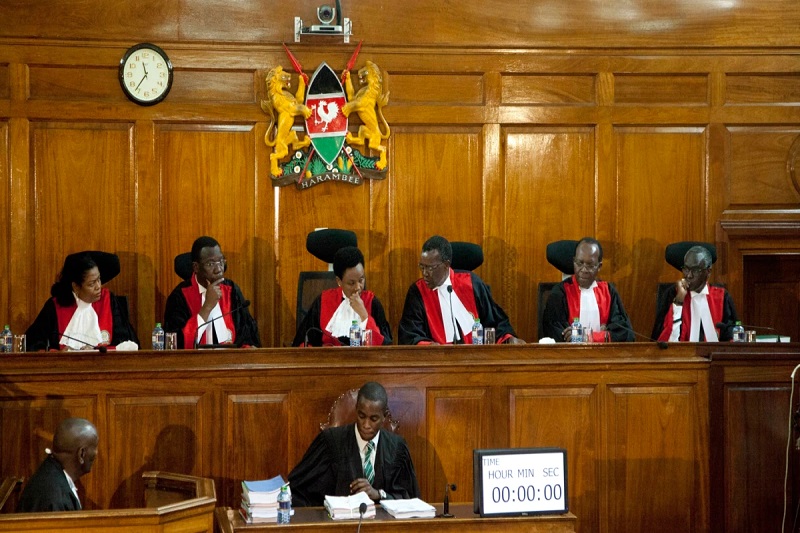Last updated on September 2nd, 2022 at 09:02 am
On Wednesday, the Supreme Court of Kenya started hearing arguments in cases challenging the results of the presidential election. On Tuesday, the court held a pre-trial hearing during which all of the parties reaffirmed the submissions made in their affidavits. A vote recount had been ordered by the court earlier, and it is currently taking place at 15 different polling places. Also, the court had thrown out two other petitions because they didn’t have the right to be heard.
On Wednesday, attorneys speaking on behalf of the first petition, Raila Odinga, took the floor in an attempt to overturn the election of William Ruto as the 5th President of Kenya. Odinga is one of the people who is challenging the results and saying that there were many problems with the way the election was run.
On the 15th of August, the winner was decided to be Deputy President William Ruto, who got a little more than 50% of the vote. By the end of Monday, the court is required to make a decision regarding all of the challenges. Kenya’s constitution from 2010 says that the Supreme Court of Kenya was set up “as the last judge and interpreter of the Constitution.” This makes it the highest court in the state.
Related Posts
Its decisions are conclusive and must be followed. If the judges decide to annul the election, a new vote has to be held within the next sixty days. Ruto would take the helm of a country that is struggling with inflation, high unemployment, and a debilitating drought if the court decides to uphold the results of the election. Since Kenya gained its independence from Britain in 1963, this will be Kenya’s fifth president.
After receiving severe backlash for the way it managed the election that took place in August 2017, the Independent Electoral and Boundaries Commission (IEBC) was under intense pressure to ensure a fair vote. In an unprecedented move for the continent, the court declared that election invalid and ordered a new round of voting, which Odinga refused to participate in. During the course of a police crackdown on protestors, dozens of people lost their lives.
After the election in 2007, Kenya had some of its worst electoral violence, which resulted in the deaths of more than 1,100 people as a result of politically motivated confrontations between competing clans. A typical legal proceeding in Kenya is called a “pre-trial conference.” This is when the court tells the parties what it plans to look into.

